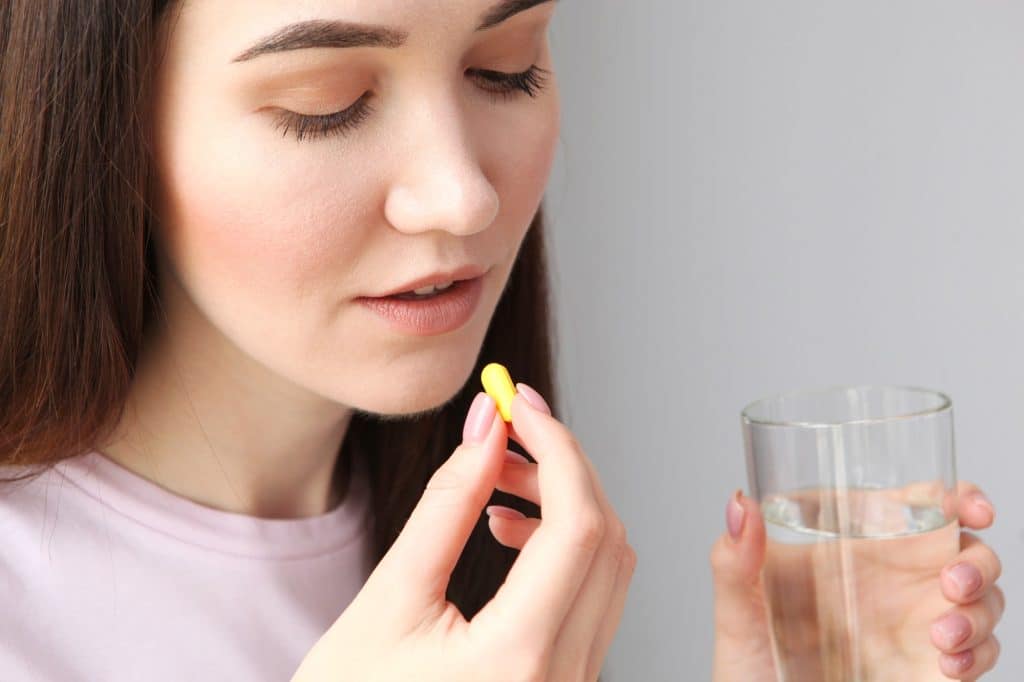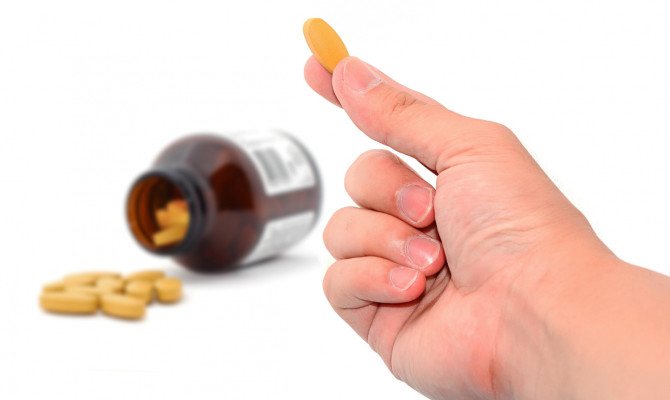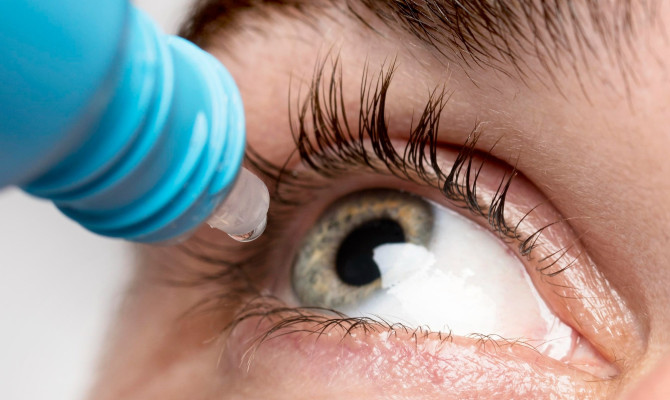Hydroxyzine: What do you need to know?

- Hydroxyzine
- 22 Aug 2023
Overview
What is Hydroxyzine?
Hydroxyzine belongs to a class of medications known as antihistamines, and its primary function is to block the action of histamine—a substance in the body responsible for causing allergic symptoms. Additionally, it exerts its effects on the brain by reducing activity, resulting in a calming effect. In the human body, when potential threats like allergens (such as dust, pollen, or pet dander) are detected, histamine acts as a messenger, sounding the alarm to initiate the body’s defense response. This response often leads to various allergic symptoms, such as itching, watery eyes, etc. However, hydroxyzine acts as a protective shield against this messenger, histamine. By inhibiting its actions, hydroxyzine prevents the alarm from going off, thereby reducing or halting the allergic symptoms, bringing relief to the individual.1Overview| Researched based study from Medlineplus.gov

Uses
What is Hydroxyzine used for?
- Hydroxyzine is used to help people with anxiety and tension, especially when caused by certain mental conditions or other medical problems.
- It can also treat itching caused by allergies and chronic skin conditions.
- It is sometimes given to adults and children before medical procedures like dental surgery to help them feel more relaxed.
- Additionally, it is used to control nausea and vomiting, except for the kind experienced during pregnancy.2Uses| Researched based study from Nlm.nih.gov
Dosage
Dosage and Forms of Hydroxyzine
Available forms:
Hydroxyzine comes in two different forms:
- Hydroxyzine hydrochloride- It is available in tablet form with different strengths like 10mg, 25mg, 50mg, and 100mg. There is also a syrup version.
- Hydroxyzine pamoate-It is offered in capsule form with strengths of 25mg, 50mg, and 100mg. Additionally, there is an oral suspension, which means it is a liquid that can be taken by mouth.
Recommended Dosage
- The typical dosage for adults can vary from 25 mg to 100 mg, taken three to four times a day.
- If it is used before surgery, the dose is usually 50 mg to 100 mg, taken one hour before the surgery.
- The dosage for children younger than 6 years is based on their weight.
- Children aged 6 to 12 years can take between 12.5 mg to 25 mg of hydroxyzine orally every 6 to 8 hours.3Dosage| Researched based study from Sciencedirect.com
Missed dose
- If hydroxyzine is prescribed by a doctor, the dose that was missed should be consumed immediately as soon as one recalls.
- If the next dose is soon due, one should overlook the skipped dose and carry on with the normal administration plan. To compensate for the left-out dose, an additional one should not be taken.
Overdose
- In case of overdose, patients need to get help right away.
- Excessive sleepiness, dry mouth, inability to urinate, pain in the head, a rapid heartbeat, disorientation, or coma can result from an overdose.1Dosage| Researched based study from Medlineplus.gov
Side effects
Side effects of Hydroxyzine
Typical adverse consequences of hydroxyzine are:
- Unsteadiness
- Weariness
- Sleepiness
- Headache
- Dryness of the mouth
- Discomfort
- Disorientation
- Vision impairment
- Retention of urine
In rare instances, individuals taking hydroxyzine may experience certain serious side effects.
- On very rare occasions, hydroxyzine may cause the heart to beat faster or irregularly, detectable through an electrocardiogram (ECG), a heart monitoring test.
- An allergic reaction may occur, leading to symptoms such as wheezing, itching rashes on the skin, and puffiness of the tongue or cheeks.
- Hydroxyzine might lead to confusion or hallucinations, where a person may see or hear things that are not present.
- A specific type of skin rash, characterized by small pus-filled bumps and severe discomfort.
- Extremely rare but a severe side effect observed exclusively in males is a prolonged and painful erection lasting more than four hours.4Side effects| Researched based study from Nami.org
Interactions
Interactions
With other antihistamines
- Taking other antihistamines with hydroxyzine can make the effects stronger, so it is important to let the doctor know if the patient is using both.
With anticholinergics
- Anticholinergic drugs that can affect certain signals in the body and might cause side effects like dry mouth, constipation, or blurred vision. Taking these with hydroxyzine could increase those effects.
Other drugs
- Medications that can make one feel very sleepy, like Ambien. Taking it along with hydroxyzine can make individuals feel extra drowsy or tired.
- In some cases, certain medications can affect the electrical activity of the heart, which can be observed through an ECG test. If an individual is using these medications together with hydroxyzine, it becomes crucial for their doctor to closely monitor their heart health to ensure safety.4Interactions| Researched based study from Nami.org
Precautions
Precautions
- Hydroxyzine should not be used during pregnancy, especially in the first or second trimester. There is a risk that hydroxyzine could be harmful to the unborn baby and may lead to birth defects.
- If a person is using this medication, it is essential to utilize effective birth control methods to prevent pregnancy while on the medicine.
- In the case of long QT syndrome, a heart rhythm disorder that affects the electrical activity of the heart, individuals should avoid taking hydroxyzine.
- If a person has a sensitivity or adverse reaction to cetirizine or levocetirizine, they should not use hydroxyzine.
- For individuals who are breastfeeding, it is not recommended to take hydroxyzine, as it is unclear whether the medication passes into breast milk and could potentially harm the baby.4Precautions| Researched based study from Nami.org
- It is important to consult with a healthcare professional before using this medication while breastfeeding to ensure the safety of the baby.5Precautions| Researched based study from lancastergeneralhealth.org
- Individuals 65 years of age and older should explore the potential hazards and advantages of taking hydroxyzine with their doctor. Older persons should generally avoid using hydroxyzine since it may be less safe than other drugs available to treat the same disease.
- Individuals should consult their doctor regarding the safe use of alcohol while taking this medication. Drinking alcohol can exacerbate the side effects of hydroxyzine.
Contraindications
Contraindications
Individuals should notify their doctor if they have any of the following conditions to guarantee the safety of hydroxyzine:
- Glaucoma, a disorder that affects the eyes
- A recent heart attack
- Cardiovascular illness
- A digestive system obstruction
- Excess potassium in the blood
- Problems with peeing.1Contraindications| Researched based study from Medlineplus.gov.gov ,5Contraindications| Researched based study from lancastergeneralhealth.org
Storage
Storage & disposal of Hydroxyzine
- Store hydroxyzine in its original package, properly sealed, and away from children.
- Keep the drug at room temperature, away from direct sunshine, high temperatures, and humidity (do not keep it in the bathroom).
- If there are any questions about refilling the prescription, they should ask the pharmacist for clarification and guidance.
- To avoid inadvertent intake by animals, children, or other people, unused or extra medicines should be disposed of appropriately. It is not advised to flush this drug down the drain, though.
Takeaway
Key takeaways
- Hydroxyzine is an antihistamine with sedative effects, and it is sometimes prescribed off-label to help with anxiety and tension.
- In mild cases of anxiety, hydroxyzine may provide sufficient relief, especially for individuals who experience anxiety-related symptoms like restlessness or mild agitation.
- However, for individuals with more severe or chronic anxiety, hydroxyzine may not be as strong as other medications specifically designed for anxiety treatment
- While hydroxyzine is not typically classified as a “serious drug,” like any medication, it can have potential side effects and interactions with other medications.
- Continuous monitoring of patients throughout their hydroxyzine treatment is essential to effectively manage any adverse events or side effects. If patients experience confusion or feelings of sickness while taking hydroxyzine, it is crucial for them to consult with their healthcare professional promptly.
Any feedback on this article?
 This Articles content was accurate
This Articles content was accurate Very Informative Article
Very Informative Article I have a question or a comment
I have a question or a comment
 This article contains inaccurate content
This article contains inaccurate content This article was not helpful
This article was not helpful I have a question or a comment
I have a question or a comment
We appreciate your helpful feedback!
Checkout our social pages
References
-
Medline Plus
Hydroxyzine | Overview
-
National Library of Medicine
Hydroxyzine | Uses
-
Science Direct
Hydroxyzine | Dosage
-
National Alliance on Mental Illness
Hydroxyzine (Vistaril) | Side effects | Precautions | Interactions
-
Penn Medicine Lancaster General Health
HydrOXYzine Hydrochloride | Contraindications



































